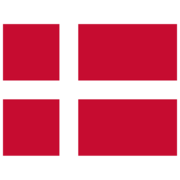Fiscal subject related
While electronic invoicing will not be mandatory right away, businesses must ensure their systems can handle and archive such invoices. Failure to comply with these requirements could lead to fines of up to DKK 1.5 million (approximately 201,145.50 EUR) and may result in auditors issuing a qualified opinion in annual reports.
The Danish Business Authority is actively informing businesses about these upcoming changes, particularly those required to submit annual reports. Companies using approved standard bookkeeping systems will not need to ensure compliance themselves, as their system providers will manage this responsibility. However, businesses utilizing customized systems, such as SAP, must verify that their solutions meet the new legal standards.
This move is part of Denmark's broader effort to modernize its accounting practices and combat tax fraud while enhancing the efficiency of financial reporting.
Other news from Denmark
TLv6 Implementation Marks Significant Shift in EU’s Trust List Format
A new EU Trust List format, TLv6, will officially replace TLv5 in May 2025 as part of the updated eIDAS Regulation (EU 2024/1183). It introduces key technical changes like a new URI field, updated signature format, and optional phone number support. Organizations must update their systems to avoid signature validation failures and service disruptions, as TLv5 will no longer be valid once TLv6 take... Read more



Denmark: The Latest Postponement Release Date of OIOUBL 3.0
 Denmark
Author: Nikola Novković
Denmark
Author: Nikola Novković
Denmark has postponed the final release of its updated e-invoicing standard, OIOUBL 3.0, from April 10 to October 2025, due to numerous inquiries and the need for further analysis. The update aims to improve electronic communication between businesses and public-sector entities while aligning with national and EU standards. The Danish Business Authority will announce next steps once the ongoing ev... Read more



General overview regarding the Denmark 2025 e-invoicing system and NemHandel platform
 Denmark
Author: Nikola Novković
Denmark
Author: Nikola Novković
Denmark mandates that all B2G e-invoices be exchanged via the NemHandel platform following the OIOUBL standard, ensuring compliance with the European standard (EN-16931) since April 2019. Additionally, the Danish Bookkeeping Act requires all businesses to adopt Digital Bookkeeping Systems (DBS) capable of handling e-invoices, with a final compliance deadline of January 1, 2026. When it comes to B2... Read more



VIDA regulation adopted—what does that mean for business?
The EU adopted the VAT in the Digital Age (ViDA) package on March 11, 2025, introducing major changes to the VAT system starting January 1, 2027. Key reforms include mandatory digital VAT reporting by 2030, new VAT collection rules for online platforms, and expanded One-Stop Shop (OSS) registration to simplify cross-border compliance. Additional measures, such as mandatory e-invoicing, phasing out... Read more



Danish Business Authority Releases Updated Peppol Schematron Package 1.2.11
 Denmark
Author: Ivana Picajkić
Denmark
Author: Ivana Picajkić
The Danish Business Authority released Peppol BIS3-Other package version 1.2.11 on February 12, 2025, incorporating Peppol's hotfix for schematron version 3.0.14, which became mandatory on February 17, 2025. The update requires users to also adopt Danish CIUS package version 1.14.0, which includes Peppol schematrons updated to version 3.0.18. Read more



Slovenia: EU Targets Unsafe E-Commerce Imports with New Measures
The European Commission is tightening regulations on e-commerce imports to address the surge of unsafe and counterfeit goods, particularly from China, by reforming customs rules and increasing product safety checks. Key measures include removing the duty exemption for low-value parcels, introducing a potential customs fee, establishing priority control areas, and launching an EU-wide product safet... Read more



Denmark Updates OIOUBL E-Invoicing Standard: New Schematron Version 1.15 RC Released for Testing
 Denmark
Author: Ivana Picajkić
Denmark
Author: Ivana Picajkić
The Danish Business Authority has released OIOUBL Schematron 1.15 (RC) for OIOUBL 2.1, introducing stricter VAT validation rules to improve e-invoicing accuracy. Changes include mandatory 0% VAT rates for Zero-Rated items, stricter VAT amount calculations at the line level, and enhanced VAT summary validation for entire invoices. . Read more


